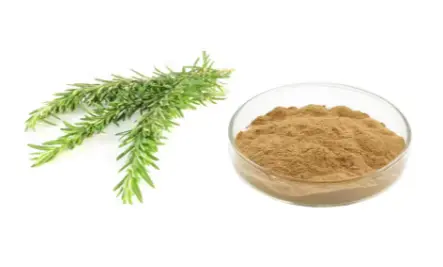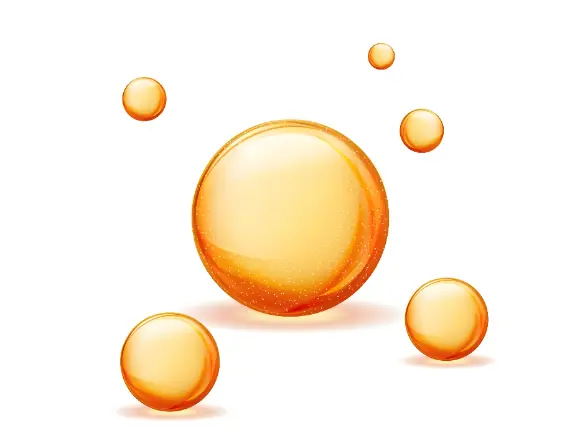- English
- French
- German
- Portuguese
- Spanish
- Russian
- Japanese
- Korean
- Arabic
- Greek
- German
- Turkish
- Italian
- Danish
- Romanian
- Indonesian
- Czech
- Afrikaans
- Swedish
- Polish
- Basque
- Catalan
- Esperanto
- Hindi
- Lao
- Albanian
- Amharic
- Armenian
- Azerbaijani
- Belarusian
- Bengali
- Bosnian
- Bulgarian
- Cebuano
- Chichewa
- Corsican
- Croatian
- Dutch
- Estonian
- Filipino
- Finnish
- Frisian
- Galician
- Georgian
- Gujarati
- Haitian
- Hausa
- Hawaiian
- Hebrew
- Hmong
- Hungarian
- Icelandic
- Igbo
- Javanese
- Kannada
- Kazakh
- Khmer
- Kurdish
- Kyrgyz
- Latin
- Latvian
- Lithuanian
- Luxembou..
- Macedonian
- Malagasy
- Malay
- Malayalam
- Maltese
- Maori
- Marathi
- Mongolian
- Burmese
- Nepali
- Norwegian
- Pashto
- Persian
- Punjabi
- Serbian
- Sesotho
- Sinhala
- Slovak
- Slovenian
- Somali
- Samoan
- Scots Gaelic
- Shona
- Sindhi
- Sundanese
- Swahili
- Tajik
- Tamil
- Telugu
- Thai
- Ukrainian
- Urdu
- Uzbek
- Vietnamese
- Welsh
- Xhosa
- Yiddish
- Yoruba
- Zulu
Is rosemary leaf extract safe for skin?
Rosemary leaf extract has gained significant popularity in the skincare industry due to its potential benefits for skin health. Derived from the aromatic herb Rosmarinus officinalis, this potent extract has been used for centuries in traditional medicine and culinary applications. Today, it's making waves in the world of skincare, but many people wonder: is rosemary leaf extract safe for skin? Let's delve into the science behind this natural ingredient and explore its safety profile and potential benefits for your skin.

Skin Benefits of Rosemary Leaf Extract
Antioxidant Properties
Rosemary leaf extract is rich in antioxidants, which play a crucial role in protecting the skin from oxidative stress caused by free radicals. These unstable molecules can damage skin cells, leading to premature aging and other skin issues. The antioxidants in rosemary leaf extract, such as rosmarinic acid and carnosic acid, help neutralize free radicals, potentially reducing the appearance of fine lines, wrinkles, and other signs of aging.
Anti-inflammatory Effects
Inflammation is a common culprit behind many skin problems, including acne, rosacea, and eczema. Rosemary leaf extract has demonstrated significant anti-inflammatory properties, which may help soothe irritated skin and reduce redness. This makes it a valuable ingredient for those with sensitive or reactive skin types.
Antimicrobial Activity
Research has shown that rosemary leaf extract possesses antimicrobial properties, which can be beneficial for skin health. By inhibiting the growth of certain bacteria and fungi, it may help prevent acne breakouts and other skin infections. This natural antimicrobial action makes rosemary leaf extract a promising alternative to harsh chemical preservatives in skincare products.

How Rosemary Leaf Extract Improves Skin Health?
Enhancing Skin Circulation
One of the most significant ways rosemary leaf extract benefits the skin is by enhancing circulation. Improved blood flow delivers more oxygen and vital nutrients to skin cells, supporting a natural glow and healthier complexion. At the same time, better circulation encourages the removal of toxins, metabolic waste, and impurities that can dull the skin. Over time, this process helps revitalize tired-looking skin, promoting a brighter, more youthful appearance while supporting overall skin vitality and resilience.
Regulating Sebum Production
For individuals with oily or acne-prone skin, rosemary leaf extract can provide important balancing effects. Research indicates that it may help regulate sebum production, preventing the skin from becoming excessively oily and reducing the likelihood of clogged pores. This natural oil-regulating action helps minimize breakouts and supports a clearer complexion. Combined with its antibacterial and soothing properties, rosemary leaf extract can be especially beneficial in skincare routines designed for acne management, offering a gentle yet effective botanical solution.
Supporting Collagen Production
Collagen is a vital protein that gives our skin its structure and elasticity. As we age, collagen production naturally decreases, leading to sagging skin and wrinkles. Rosemary leaf extract has been shown to support collagen production and protect existing collagen from degradation. This can help maintain skin firmness and elasticity, potentially slowing down the visible signs of aging.

Incorporating Rosemary Leaf Extract in Skincare
Choosing the Right Products
When looking to incorporate rosemary leaf extract into your skincare routine, it’s important to select high-quality formulations from trusted manufacturers. Always check the ingredient list for Rosmarinus officinalis (rosemary) leaf extract to confirm authenticity. Since concentration levels can vary widely between products, beginners or individuals with sensitive skin should start with lower-strength options. This gradual approach helps minimize the risk of irritation while allowing your skin to adapt and benefit from rosemary’s natural antioxidant and soothing properties.
Patch Testing for Safety
Although Rosemary Leaf Extract is widely regarded as safe for most skin types, conducting a patch test remains a vital precaution. Apply a small amount of the product on a discreet area, such as the inner forearm or behind the ear, and wait 24–48 hours to observe potential reactions. If redness, itching, or irritation occurs, discontinue use immediately and consult a dermatologist. This careful step ensures you can enjoy the extract’s benefits while safeguarding your skin’s health and preventing avoidable sensitivities.
Integrating into Your Skincare Routine
Rosemary leaf extract is versatile and can be found in numerous skincare formulations, including cleansers, toners, serums, and moisturizers. For best results, consider incorporating it into your daily regimen. After cleansing and toning, applying a serum or moisturizer infused with rosemary leaf extract helps deliver antioxidants and anti-inflammatory compounds directly to the skin. With consistent use, this can improve skin clarity, support a healthier complexion, and complement other active ingredients, making rosemary a valuable addition to modern skincare practices.

Conclusion
Rosemary leaf extract manufacturers offers a plethora of potential benefits for skin health, from its antioxidant and anti-inflammatory properties to its ability to improve circulation and support collagen production. While it is generally considered safe for most skin types, individual reactions can vary. As with any new skincare ingredient, it's essential to introduce rosemary leaf extract gradually and monitor your skin's response.
If you're looking to experience the benefits of rosemary leaf extract in your skincare routine, consider exploring high-quality products from reputable manufacturers like GreenHerb Biological Technology Co., Ltd. As a leading supplier of plant extracts and natural ingredients, GreenHerb offers premium Rosemary Leaf Extract with standardized levels of active compounds. For more information on our Rosemary Leaf Extract and other natural skincare ingredients, please contact us at sales@greenherbbt.com.

FAQ
Can rosemary leaf extract cause skin irritation?
While generally safe, some individuals may experience mild irritation. Always perform a patch test before use.
Is rosemary leaf extract suitable for all skin types?
Rosemary leaf extract can benefit most skin types, but those with very sensitive skin should use caution.
How long does it take to see results from using rosemary leaf extract?
Results can vary, but some users report improvements in skin texture and appearance within 4-6 weeks of consistent use.
Can I use rosemary leaf extract if I'm pregnant?
Consult with your healthcare provider before using any new skincare ingredients during pregnancy.
Does rosemary leaf extract have any side effects?
When used topically as directed, side effects are rare. However, some people may experience redness or itching.

References
1. Andrade, J. M., et al. (2018). Rosmarinus officinalis L.: an update review of its phytochemistry and biological activity. Future Science OA, 4(4), FSO283.
2. Carvalho, R. N., et al. (2019). Rosemary (Rosmarinus officinalis L.) extract: Biological properties and clinical effectiveness in skin disorders. Phytotherapy Research, 33(9), 2218-2230.
3. Nobile, V., et al. (2016). Anti-inflammatory and antioxidant effects of a combination of cannabidiol and rosemary extract in topical formulations. Cosmetics, 3(4), 38.
4. Pazyar, N., & Yaghoobi, R. (2018). The potential of rosemary extract in the treatment of skin disorders. Journal of Dietary Supplements, 15(1), 98-108.
5. Ulbricht, C., et al. (2010). An evidence-based systematic review of rosemary (Rosmarinus officinalis) by the Natural Standard Research Collaboration. Journal of Dietary Supplements, 7(4), 351-413.
